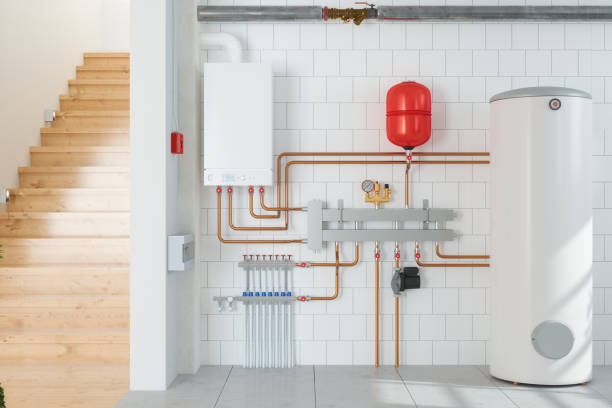
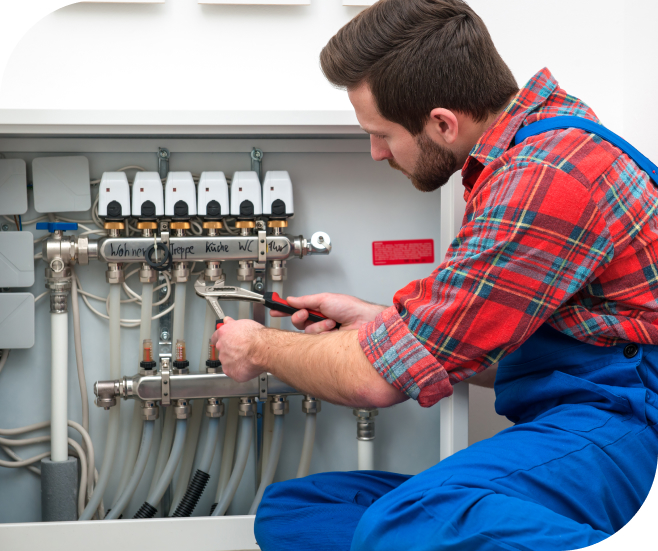
From new boilers, circulating pumps and extra radiators to a complete central heating installation; our team of plumbers, heating engineers and central heating installers are experienced in all types of gas, electric and oil central heating installations.
We provide central heating repairs when needed and our specialist engineers and plumbers are available to answer questions, give a free quote or recommendations on what should be done.
Oil-fired central heating systems are an ideal choice for properties not linked to the main gas supply. These systems use heating oil to fuel the boiler, which in turn provides hot water for radiators and taps.
-Efficient fuel usage.
-The ability to purchase oil in bulk when prices drop.
-Providing a reliable heating solution for homes without access to mains gas.

An electrical central heating system uses electricity to heat water or air, distributing warmth through radiators or underfloor heating. It’s ideal for homes without gas access and offers precise temperature control.
-Is highly energy-efficient, converting nearly all electricity into heat.
-Requires low maintenance due to fewer moving parts, reducing the need for frequent servicing.
-Offer flexible installation, as they don’t need gas pipes or chimneys, making them suitable for any home.

A gas central heating system uses natural gas to heat water, which is circulated through radiators or underfloor pipes to warm a building. It is an efficient and cost-effective solution for homes with mains gas supply.
-High energy efficiency with quick heating response.
-Generally cheaper to run compared to other heating systems.
-Offer flexible installation, as they don’t need gas pipes or chimneys, making them suitable for any home.
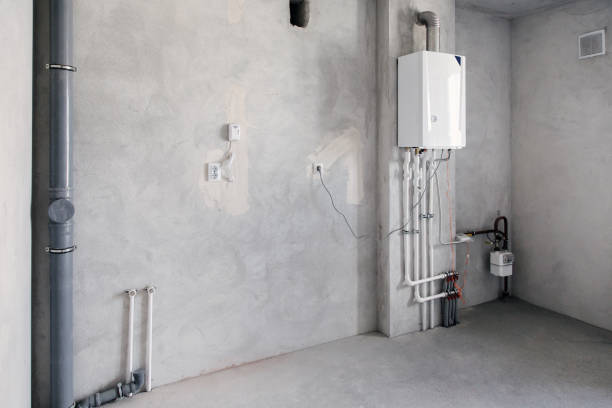
Get in touch with us through filling the form with your details and needs
We’ll provide you with a detailed breakdown of the costs and schedule of work.
We visit your premises and install the central Heating System in your premises.
Your premises are now warm and cozy.
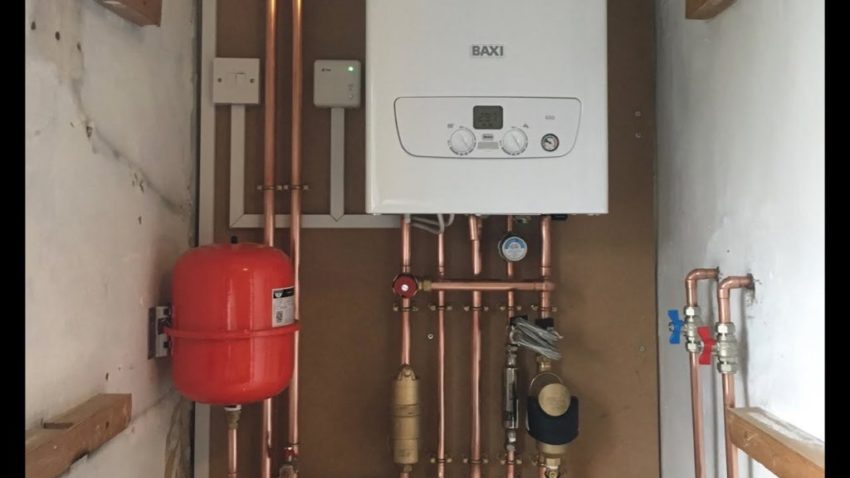
Combi boilers can be more cost-effective to operate than other types of boilers. However, whether a combi boiler is suitable for your home depends on your hot water usage patterns. If you typically only need hot water in one location at a time, a combi boiler is an excellent choice. But if you frequently require hot water in multiple places simultaneously, like doing the dishes while someone else is showering, a combi boiler may not offer savings over a regular boiler.
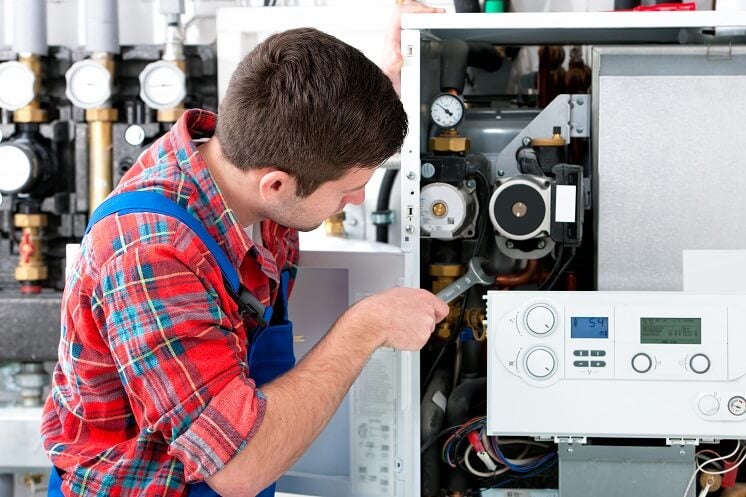
Our expert engineers provide efficient and reliable combi boiler installation and repair services for both residential and commercial properties. Whether upgrading your heating system with a new combi boiler or needing urgent repairs, our team is ready to assist. We ensure precise installation and quickly diagnose and fix issues, optimising your home’s heating and hot water efficiency. Trust us for all your combi boiler needs.
We have provided answers to the most frequently asked questions about the Combi boilers below.
Yes, combi boilers are significantly more energy-efficient than older boiler models. They heat water on demand, which allows them to operate more efficiently compared to boilers that depend on water tanks.
Combi boilers, along with condensing boilers, can reach energy efficiency levels of over 90%. In contrast, older boiler types typically achieve only 70-80% efficiency.
If you’re replacing an older boiler with a combi boiler, some pipework will need to be modified.
When installing the new boiler in the same spot as the old one, the engineer will need to connect new hot and cold water pipes to the boiler, install a new flue, and fit a new blow-off pipe that extends outside. These steps are part of a typical combi boiler installation.
However, you likely won’t need new piping for your radiators or the rest of your central heating system.
Combi boilers are typically wall-mounted and can be installed in a variety of locations, including kitchens, bathrooms, or airing cupboards. The location must allow for proper ventilation and easy access for maintenance.
It’s recommended to have your combi boiler serviced annually to ensure it’s running efficiently and to catch any potential issues early.
If your boiler is relatively new and the repair is minor, fixing it might be the best option. However, if the boiler is old and prone to frequent breakdowns, replacing it could be more cost-effective in the long run.
Common issues include loss of pressure, no heating or hot water, strange noises, and leaking. Many of these problems can be resolved with a professional repair.
Pressure loss could be due to a leak in the system, a faulty pressure relief valve, or air trapped in the radiators. A professional can diagnose and fix the issue.
First, check the basics like the power supply, thermostat settings, and pressure gauge. If everything appears normal and the boiler is still not working, it’s best to contact a qualified engineer for a professional diagnosis.
For a combi boiler, you can set different temperatures for your hot water and your radiators. The optimum output temperature for radiators is 75°C. For the water it’s between 50 °C and 60 °C. The higher the temperature is set, the quicker your combi boiler will heat up.
Thermostats and combi boilers work together to heat your home to the temperature you want. The thermostat has a sensor to detect your home’s temperature. It then ‘talks’ to the boiler – so if you set the thermostat to 19°C and your home’s temperature is 17°C, the thermostat tells your combi boiler to turn on and start heating up the radiators. Once the temperature reaches 19°C, it tells the boiler to turn off.
 0800 232 507
0800 232 507Address: Innovation Centre, Medway, Maidstone Road
ME5 9FD